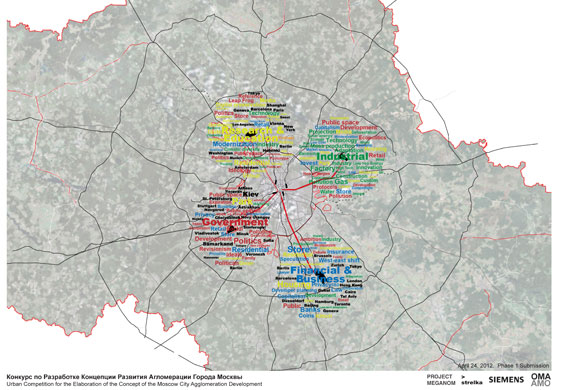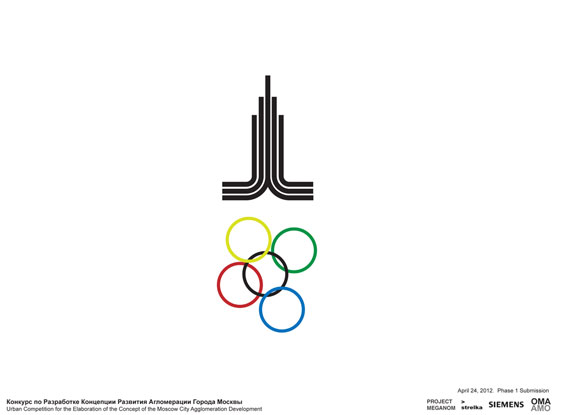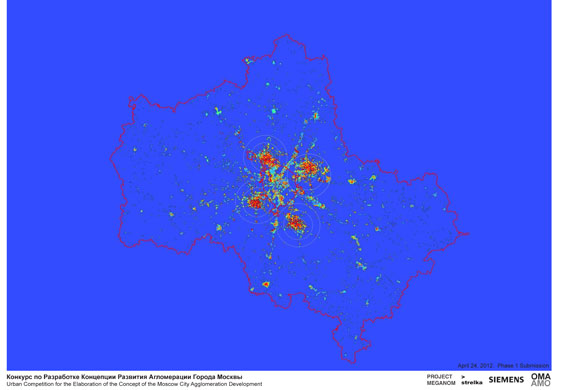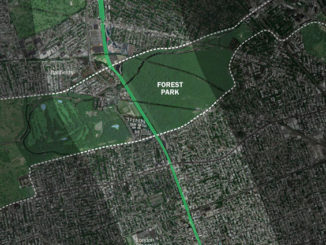A consortium of experts led by OMA scored the highest of the 10 teams that completed the first stage of the competition to develop the concept of the Moscow Agglomeration.

In 2011, the Russian Federation Council confirmed that the city of Moscow will annex 150,000 hectares to the southwest, making Moscow 2.4 times its current size. The expansion is designed to relieve pressure on the historic city center by redistributing the working places to the annexed part of the Moscow Oblast, thereby addressing transport, ecological and social issues that result from high levels of commuting. Before Moscow’s new administrative borders come into force in July this year, the Council called for a concept for the development of the Moscow Agglomeration, and in February this year the Council invited 10 teams to participate in the development of this concept.
For the first round of the competition, focused on a plan for the Moscow Agglomeration as a whole, OMA proposed a joint framework for the development of Moscow and the Moscow Oblast, under which the administrative border and political mandate could address the entirety of the Agglomeration. OMA proposed logistical hubs outside Moscow’s current boundaries which would be linked to the City and the Oblast through high-speed rail, integrating all forms of infrastructure: transport, broadband, industry, and energy provisions. The proposal also suggested that the development would not rely solely on government funding, but could introduce a public/private mix.
On the proposed development strategy, OMA Partner-in-charge Reinier de Graaf says, “We are very honored to participate in such an ambitious project. In launching this plan, the authorities have taken an important step in addressing the problems of the city at the appropriate scale: Moscow’s proposed expansion becomes a reason to develop a single integrated future for Moscow and the Oblast.”
The OMA team working with AMO, its internal research studio, is led by Reinier de Graaf and Associate Laura Baird. The concept is being developed together with a core team consisting of the Strelka Institute for Media, Architecture and Design, Project Meganom and Siemens. This core team will be supported by an advisory board which includes McKinsey, Ricky Burdett, Saskia Sassen, member of the Committee for Global Thought (Columbia University), the Levada Center, West 8, and RWDI.

IMAGE CREDITS: © OMA



